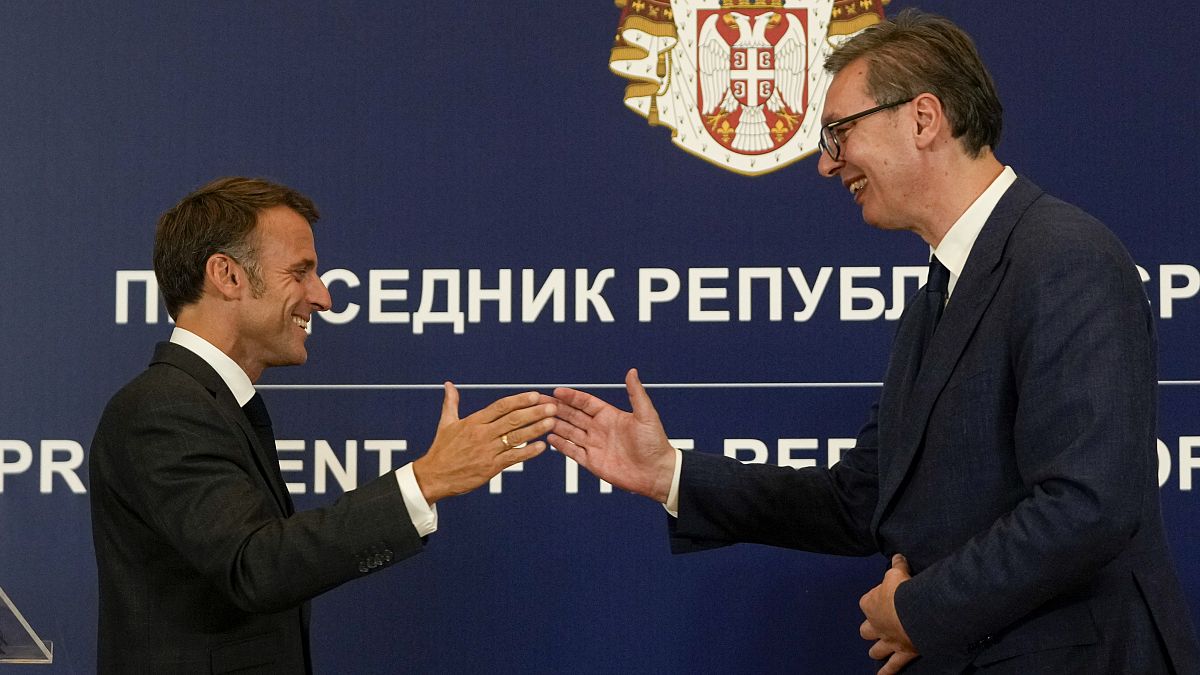Serbia is currently seeking membership in the European Union, but President Alexander Vučić’s autocratic rule has hindered progress in the areas of rule of law and democratic reforms, necessary for EU accession. French President Emmanuel Macron recently signed a deal to sell Serbia 12 Rafale fighter jets, marking a shift away from Russian arms dependence. Macron praised Serbia’s choice of the Rafale aircraft as a demonstration of European spirit and a step towards a stronger, more sovereign Europe. The €2.7 billion deal includes a complete logistics package and marks a significant upgrade for Serbia’s military fleet.
Despite seeking EU membership, Serbia has faced challenges under Vučić’s leadership in meeting EU requirements. Macron has encouraged Serbia to continue pursuing its EU future, emphasizing the importance of a strong and democratic Serbia within the EU. Macron also warned that Serbia’s balancing act between world powers, particularly Russia, is an illusion. He highlighted the need for Serbia to align with the EU to protect its interests and preserve its identity. Concerns have been raised over Serbia’s rapid military arming and its potential impact on neighboring countries given its history of conflict in the Balkans.
The deal to sell Rafale fighter jets to Serbia has sparked concerns about the transfer of sophisticated technology to Russia, a traditional ally of Serbia. With Serbia almost completely surrounded by NATO member countries, the move has raised eyebrows about potential security implications in the region. Macron’s visit to Serbia aimed at strengthening ties with the EU while emphasizing the importance of democratic reforms as a prerequisite for EU accession. Despite the challenges faced by Serbia, Macron’s message of the need for a strong and sovereign European Union to protect Serbia’s interests resonates with the ongoing debate surrounding Serbia’s EU membership.
The Rafale deal represents a significant step towards modernizing Serbia’s military capabilities and reducing its reliance on Russian arms. Macron’s praise for Serbia’s choice of the Rafale fighter jets as a strategic alliance between France and Serbia underscores the importance of European cooperation in the region. As Serbia navigates its path towards EU membership, it will need to address concerns regarding democratic reforms and rule of law to align with EU standards. The EU accession talks remain a central focus for Serbia’s future as it seeks to balance relationships with both the EU and traditional allies like Russia.
In conclusion, the sale of Rafale fighter jets to Serbia signifies a shift towards strengthening ties with the European Union and reducing dependence on Russian arms. Macron’s visit to Serbia emphasized the importance of democratic reforms and rule of law as key prerequisites for EU accession. Despite the challenges faced by Serbia under Vučić’s leadership, the Rafale deal represents a significant step towards modernizing its military capabilities and aligning with European standards. The concerns raised regarding potential technology transfer to Russia highlight the complex geopolitical landscape in the region. Moving forward, Serbia will need to address these concerns while pursuing its EU membership goals to ensure a strong and stable future within the European Union.










